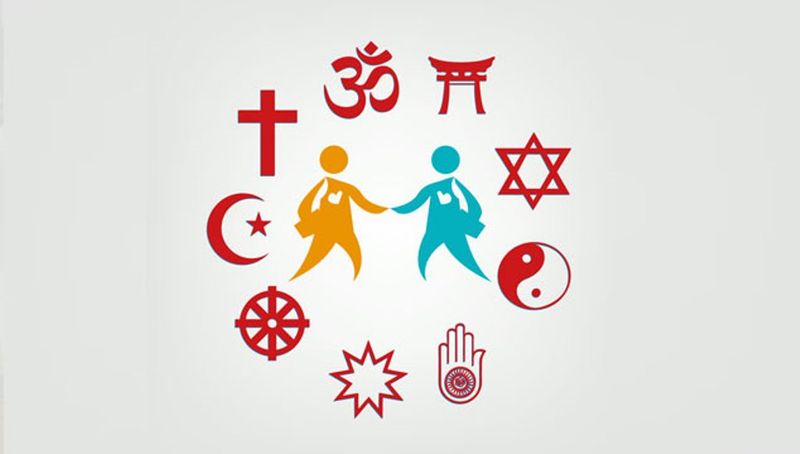19 Red Flags People Usually Ignore When They Marry Someone They’re Not Compatible With — And Why It Ends In Divorce
Navigating the path to a harmonious marriage can be fraught with unforeseen challenges. Often, love blinds us to underlying incompatibilities that can later unravel the fabric of a relationship.
Understanding these red flags can be the key to avoiding future heartbreak and ensuring a partnership is built on solid ground.
This article delves into 19 crucial warning signs that many overlook, highlighting why these issues often lead to divorce.
1. Fundamental differences in core values

Core values form the foundation of one’s life philosophy, influencing decisions and priorities. When two individuals hold divergent beliefs, it can create friction over everyday choices and long-term plans.
For example, one partner may prioritize career advancement and material wealth while the other values simplicity and personal fulfillment. These opposing perspectives can lead to conflicts over lifestyle choices, such as where to live, how to spend money, or even how to raise children.
While initial attraction may overshadow these differences, they often resurface in critical life stages. The tension grows when neither party is willing to compromise or understand the other’s viewpoint. Without mutual respect and open dialogue, these fundamental differences can erode the relationship’s foundation, leading to dissatisfaction and eventual separation. Appreciating and respecting each other’s values is crucial for long-term harmony.
2. Lack of shared life goals or visions

A shared vision for the future is a cornerstone of a successful partnership. When partners have divergent life goals, it can create a disconnect that strains their relationship. One might dream of a bustling city life filled with career advancement, while the other yearns for a quiet, rural existence surrounded by nature.
Such differences in aspirations often become apparent when making significant decisions like buying a home or starting a family. Without alignment in goals, couples may find themselves pulling in opposite directions, leading to frustration and resentment.
The absence of a unified vision can make collaboration feel like a compromise rather than a joint effort. Sharing aspirations and finding common ground is essential for a fulfilling partnership. Without it, the relationship can feel like a constant negotiation, eroding trust and intimacy over time.
3. Poor communication styles that clash

Communication is the lifeblood of any relationship. When styles clash, misunderstandings and frustration become common. One partner may prefer open and frequent discussions, while the other leans towards brevity and quiet reflection. These differences can lead to feelings of being unheard or misunderstood.
Over time, unresolved communication issues can breed resentment and isolation, as conversations become battlegrounds rather than opportunities for connection. Active listening and a willingness to adapt are vital to bridging these gaps.
Recognizing and valuing each other’s communication preferences can transform dialogue from a source of conflict to a foundation of mutual understanding. Without this effort, couples may drift apart, unable to bridge the gulf created by their differing styles.
4. Unresolved personal traumas affecting the relationship

Personal traumas, when unaddressed, can cast long shadows over relationships. Past experiences shape behavior, and unresolved issues might manifest as defensiveness, withdrawal, or mistrust. One partner’s unresolved trauma can unintentionally build barriers, creating emotional distance.
A spouse may struggle to understand their partner’s triggers or emotional responses, leading to hurt feelings and tension. Without open communication and support, these traumas can become insurmountable hurdles in an otherwise loving relationship.
Couples benefit from acknowledging these buried wounds and seeking healing, either individually or together. Therapy and open dialogue can pave the way for understanding and compassion, transforming potential stumbling blocks into stepping stones for deeper connection. Ignoring these issues can lead to repeated patterns of hurt and eventual disconnection.
5. Disparities in emotional intelligence

Emotional intelligence (EI) plays a pivotal role in how partners connect and empathize with each other. When there’s a significant disparity, it can lead to misunderstandings and frustration. One partner may easily empathize and navigate emotional complexities, while the other struggles to recognize or articulate feelings.
This imbalance can cause a rift as one feels emotionally disconnected or unsupported. The partner with higher EI may become burdened with the emotional labor of the relationship, leading to exhaustion and resentment.
Building emotional intelligence together is crucial for fostering empathy and connection. Partners can grow by practicing active listening and expressing feelings constructively. Without this growth, the gap in emotional understanding may widen, causing lasting damage to the partnership.
6. Conflicting approaches to conflict resolution

How couples handle disagreements often defines the strength of their relationship. Conflicting approaches, such as one partner favoring direct confrontation while the other avoids conflict, can lead to unresolved issues and built-up resentment. These opposing styles can make it difficult to reach a compromise, as the underlying problems remain unaddressed.
Ineffective conflict resolution can escalate minor disagreements into major disputes. The inability to navigate conflicts constructively can result in a lingering sense of dissatisfaction and distance between partners.
Learning to respect each other’s methods and finding a balanced approach is key. Couples who prioritize effective conflict resolution can turn potential arguments into opportunities for growth and understanding. Without this, conflicts may become a recurring source of tension and eventual separation.
7. Mismatched levels of ambition or drive

Ambition can be a double-edged sword in relationships. When partners have mismatched levels of drive, it can lead to feelings of inadequacy or resentment. One partner’s relentless pursuit of career goals might clash with the other’s desire for a balanced, relaxed lifestyle.
This disparity can create tension when prioritizing time and resources. The ambitious partner may feel unsupported, while the other feels overwhelmed by expectations. These differences can stifle mutual appreciation and respect, leading to emotional distance.
Finding a middle ground where both partners feel valued and supported is essential. Recognizing and celebrating each other’s achievements, regardless of scale, can foster a sense of teamwork and satisfaction. Ignoring this mismatch may lead to frustration and eventual disconnection.
8. Differing views on finances and spending

Financial disagreements are a common source of marital tension. Differing attitudes towards money can lead to conflicts over spending, saving, and financial planning. One partner may be a saver, valuing security and future planning, while the other enjoys spending and living in the moment.
These conflicting perspectives can create stress, especially when planning for significant expenses like buying a home or planning retirement. The saver may feel anxious about financial stability, while the spender feels restricted and controlled.
Open discussions about financial goals and creating a shared budget can help bridge these differences. Couples who work together on financial planning can create a sense of teamwork and mutual respect. Without proactive communication, these financial disparities can lead to resentment and, ultimately, divorce.
9. Incompatible desires or expectations in the bedroom

Physical compatibility is a critical component of a satisfying relationship. When desires or expectations differ, it can lead to frustration and disconnect. One partner may have a higher libido, seeking frequent intimacy, while the other may prioritize emotional connection over physical interaction.
These differences can lead to feelings of rejection or inadequacy, causing emotional distance and tension. Open conversations about physical needs and boundaries are essential to bridging this gap.
Exploring ways to satisfy both partners’ needs can create a fulfilling and balanced relationship. However, without addressing these differences, unresolved tension can fester, leading to dissatisfaction and potentially contributing to the relationship’s demise.
10. Divergent religious or spiritual beliefs

Religious and spiritual beliefs often shape values, traditions, and life choices. When partners have divergent beliefs, it can create tension around important life decisions and family traditions. For instance, deciding how to raise children or celebrate holidays may become sources of conflict.
These differences can feel like insurmountable barriers without mutual understanding and respect. One partner may feel isolated or pressured to conform, leading to resentment and emotional distance.
Open dialogue and a willingness to learn about each other’s beliefs can foster respect and harmony. Couples who navigate these differences successfully often find strength in diversity. However, ignoring these disparities can lead to alienation and eventual separation.
11. Varied social needs and preferences

Social preferences play a significant role in relationship dynamics. When partners have differing social needs, it can lead to frustration and feelings of neglect. One may thrive in social settings, craving regular interaction with friends, while the other prefers solitude or small gatherings.
These differences can cause tension when deciding how to spend free time or plan vacations. The social butterfly may feel restricted, while the introvert feels overwhelmed by social obligations.
Recognizing and respecting each other’s social needs can help create balance and satisfaction in the relationship. Finding compromise and mutual activities can enhance understanding and enjoyment. Without acknowledging these differences, partners may feel isolated and misunderstood, leading to disconnection.
12. Unequal commitment to personal growth

Personal growth is a journey that partners can embark on together or individually. When one partner is committed to self-improvement and the other is content with the status quo, it can lead to feelings of imbalance and frustration. The growth-oriented partner may feel unsupported or misunderstood in their aspirations.
These differences can create tension as goals and interests diverge. The partner focused on growth may seek new experiences and challenges, while the other prefers stability and routine.
Fostering mutual support and encouraging each other’s growth journeys can strengthen the relationship. Embracing change and respecting different paces of growth is crucial for maintaining balance. Without this, the relationship may feel stagnant, leading to dissatisfaction and eventual separation.
13. Disrespect for each other’s boundaries

Respecting personal boundaries is vital for a healthy relationship. When partners disregard each other’s boundaries, it can lead to feelings of violation and mistrust. For example, one partner may invade personal space or make decisions without consulting the other.
These breaches can create tension and erode trust over time. The disrespected partner may feel undervalued and ignored, leading to resentment.
Clear communication about boundaries and mutual respect can help build trust and understanding. Partners who honor each other’s personal space and decisions often enjoy stronger connections. Ignoring boundaries can lead to ongoing conflict and eventual disconnection.
14. Lack of mutual support during challenges

Life’s challenges can test the strength of a relationship. When mutual support is lacking, it can lead to feelings of isolation and frustration. One partner may feel overwhelmed by personal struggles, while the other appears indifferent or dismissive.
This lack of support can create emotional distance and erode trust. The unsupported partner may feel neglected, intensifying feelings of loneliness.
Offering empathy and understanding during tough times can strengthen the bond and foster resilience. Couples who face challenges together often emerge stronger. Without this support, the relationship may suffer, leading to dissatisfaction and potential separation.
15. Ignoring gut feelings or intuition

Intuition often guides us in making significant life decisions, including choosing a partner. Ignoring gut feelings about incompatibility can lead to regrets and dissatisfaction. One partner may sense unease or doubt but dismisses these feelings in favor of maintaining harmony.
Over time, these ignored intuitions can lead to resentment and discontent as underlying issues remain unaddressed. The partner who ignored their gut may feel trapped in a relationship that doesn’t fulfill their needs.
Listening to and trusting one’s intuition can provide invaluable insights into relationship dynamics. Being honest about feelings and addressing concerns openly can prevent future regrets. Without this, partners may find themselves in a relationship that doesn’t align with their true selves.
16. Pressure from external sources to marry

External pressures to marry can cloud judgment and lead to ill-suited unions. Family expectations, societal norms, or peer pressure can push individuals into marriage before they’re ready or compatible. One partner may feel compelled to conform to others’ expectations, ignoring personal doubts.
This external pressure can lead to hasty decisions and subsequent regret when the relationship lacks a solid foundation. The couple may find themselves in a partnership that doesn’t align with their authentic desires.
Recognizing and resisting external pressures allows partners to make informed choices that reflect their true selves. Building a relationship based on mutual understanding and genuine connection is crucial for long-term success. Ignoring these pressures can lead to dissatisfaction and eventual separation.
17. Belief that marriage will “fix” existing issues

The belief that marriage will solve existing relationship problems is a common misconception. Some couples hope that tying the knot will magically erase issues like communication problems, trust issues, or differing goals. One partner may enter marriage with unrealistic expectations, believing it to be a cure-all.
Unfortunately, unresolved issues often intensify after marriage, leading to frustration and disappointment. The pressure to fulfill these unrealistic expectations can strain the relationship further.
Addressing and resolving issues before marriage is vital for a healthy partnership. Open communication and a willingness to work through problems can lay the groundwork for a successful union. Without this foundation, marriage may exacerbate existing problems, leading to eventual separation.
18. Incompatible Leisure Activities

Imagine a couple, each with distinct ideas of leisure. One delights in mountain hikes, finding solace in nature’s embrace, while the other finds joy in quiet moments, perhaps with a book. These differences, at first charming, can grow into a chasm.
With time, separate interests may lead to separate lives, leaving little room for shared experiences. Even love-struck couples should weigh these disparities seriously.
Leisure time is often when couples bond most, and if tastes don’t align, the disconnect can be profound, leading to feelings of isolation or neglect.
19. Varying Social Lives

In the vibrant buzz of social gatherings, differences can emerge. One partner may thrive in crowds, energized by interactions, while the other finds solace in solitude.
This contrast can initially appear as balance, but may evolve into tension. If one always drags the other to events, resentment can build.
Social preferences impact lifestyle choices significantly. A mismatch here can lead to frustration, with one feeling abandoned, the other suffocated. Understanding and respecting these differences early can prevent future discord and foster mutual respect.







